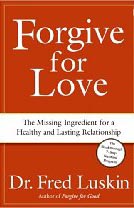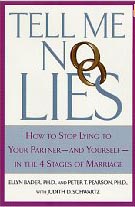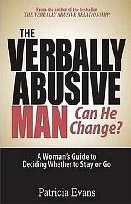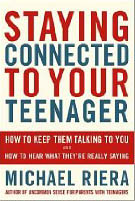Review of Controlling People, by Patricia Evans
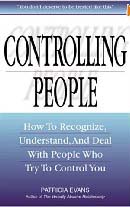
Controlling People
How to Recognize, Understand, and Deal with People Who Try to Control You
by Patricia Evans
Adams Media Corporation, Avon, Massachusetts, 2002. 300 pages.
Starred Review.
A friend recommended Patricia Evans’ first book, The Verbally Abusive Relationship, to me. I found what I began so helpful, I checked out all of her books. I seem to be finishing them in the opposite order in which they were written. However, I am finding each book tremendously helpful.
Controlling People helps make sense of behavior that seems inexplicable. I read most of this book at a time when my mind kept spinning, trying to understand how someone I loved could say some things that seemed completely outrageous. The scenario described in this book enabled me to understand more clearly how this could be, and strengthened me to keep from the conclusion that I was somehow the crazy one to think this behavior unacceptable.
In the introduction, Patricia Evans says, “You are not alone in your desire to understand the problem of control. Thousands of people have asked me, “Why would anyone act ‘like that’?” They describe the way they’ve been treated, and they wonder what compels one to try to control others. “Why don’t most people who try to control others see that they’re being oppressive? Are they under a spell or what?” they ask.
“Many people have also asked why they can’t seem to stop attempting to control others, even when these destructive behaviors are driving their loved ones away. They often say that something seems to “come over” them and things “go wrong.” At times, they are so unaware of their behavior and its impact that they don’t realize that anything has gone wrong until it’s too late — a loved one has left or violence has erupted….
“This book is a quest to find answers to these questions. It will take us on a journey of exploration through a maze of senseless behaviors woven into our world. By the end of our journey we’ll be in a new place with a new perspective on the problem of control. And the journey itself may very well be spell-breaking.”
She talks about how and why verbal abuse is based on pretending:
“If someone defines you, even in subtle ways, they are pretending to know the unknowable. There is a quality of fantasy to their words and sometimes to their actions. Even so, they are usually unaware of the fact that they are playing “let’s pretend.” They fool themselves and sometimes others into thinking that what they are saying is true or that what they are doing is right.
“When people “make up” your reality — as if they were you — they are trying to control you, even when they don’t realize it.
“When people attempt to control you they begin by pretending. When they define you they are acting in a senseless way. They are pretending. When people act as if you do not exist or are not a real person with a reality of your own … they are pretending. In this subtle and often unconscious way, they are attempting to exert control over you — your space, time, resources, or even your life.
“We know that they are pretending because in actual fact, no one can tell you what you want, believe, should do, or why you have done what you have done. No one can know your inner reality, your intentions, your motives, what you think, believe, feel, like, dislike, what you know, how you do what you do, or who you are. If someone does pretend to know your inner reality: “You’re trying to start a fight,” they have it backwards. People can only know themselves. It doesn’t work the other way around.
“Since you can only define yourself, your self-definition is yours. It isn’t necessary that you prove it or explain it. It is, after all, your own. Self-definition is inherent in being a person.
“Despite the evidence, it is difficult for many people to realize that the person who defines them is not being rational. They feel inclined to defend themselves as if the person defining them were rational. But by trying to defend themselves against someone’s definitions, they are acknowledging those definitions as valid, that they make sense, when they are, in fact, complete nonsense.”
Patricia Evans goes on to explain how someone can fall into this trap of building up a Pretend Person whom they anchor in the body of their loved one. When the real person acts differently than the way the Pretend Person is supposed to act, including not knowing or not agreeing with their own thoughts and feelings, then they naturally get very angry.
The sad thing is that these Controllers are trying to connect with someone, but end up with severe disconnection.
The author doesn’t leave it at that. She does offer suggestions for how to become a Spellbreaker and break the spell that Controllers seem to be operating under. Even if the Controller in your life does not change, she shows you ways to break out of the influence of the spell yourself. At the very least, the understanding of the dynamics involved helps break the crazy-making aspects of being exposed to these irrational behaviors.
This is a valuable and helpful book. If any of this sounds the slightest bit familiar, I highly recommend reading further. Patricia Evans goes into great depth and great detail about this pervasive problem, even covering groups connected by hate. Ultimately, her message is one of great hope.
“Instead of acting to keep Pretend Person “alive” by means of fear, intimidation, and dominance, former Controllers find that they can accept and give love freely. Their strength flows from spirit full enough to nurture another, alive enough to act toward good, clear enough to understand, faithful enough to wait and see, fearless enough to reveal the truth, free enough to choose to learn, courageous enough to stand alone, connected enough to love the other.”
Find this review on the main site at:
